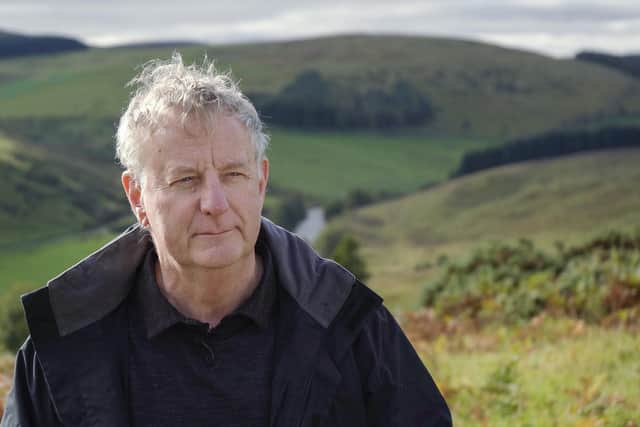£7.5m of shares sold as investors buy into new 'mass-ownership' rewilding firm in Highlands
More than 50 investors – including a Hollywood screenwriter and a world champion free-solo mountain climber – have bought in to Highlands Rewilding, becoming the first shareholders in a firm set up by eco-entrepreneur Jeremy Leggett.
Mr Leggett, a former scientific director at Greenpeace, bought the 1,200 acre Bunloit Estate near Loch Ness in 2020, following the sale of his firm Solarcentury, which brought solar panels to the mass market.
Advertisement
Hide AdAdvertisement
Hide AdLast year he added the 860-acre Beldorney Estate, near Huntly in Aberdeenshire, to his portfolio.
His aim is “to create a nature reserve optimally sequestering carbon, growing biodiversity, creating green jobs and generating profit-for-purpose in the process”.
It will also be a centre for scientific research, including quantifying the potential for the landscape to absorb carbon, and environmentally friendly development.
To do this he is selling land to his newly formed company Highland Rewilding through a crowdfunding campaign.


Most of the land at Beldorney – a tract covering 852 acres – along with two thirds of the estate at Bunloit – 830 acres – have now been sold on.
More shares will be on offer later, with prices starting as low as £10 to encourage a broader base of co-ownership, with a focus on Scots in general and Highlanders in particular.
Mr Leggett, chief executive and founder of Highland Rewilding, said: “If we want to win the existential battle with climate meltdown and biodiversity collapse we have to demonstrate that repairing nature builds more prosperity for more people than continuing to undermine it.
“And we have to involve the full fighting force of local communities in the struggle.
“Highlands Rewilding aims to do both these things.”
Advertisement
Hide AdAdvertisement
Hide AdHe says the firm’s definition of rewilding “is people-centric in large part” because the battle to combat climate change and loss of biodiversity cannot be won “without the full fighting involvement of communities”.
“Hence the mass-ownership model we are intent on for Highlands Rewilding,” he said.
As well as rewilding work, affordable eco homes are being built at Bunloit to help repopulate the area.
Meanwhile, a legacy woodland known as the Forest of Hope – celebrating the historic United Nations COP26 climate summit being held in Glasgow last year – is to be planted at Beldorney.
It will see 250,000 mixed-species native broadleaf trees planted on the site, with potential for future expansion.
The project is being carried out in a collaboration between the public and private sectors, led by environmental groups Highlands Rewilding, Climate Action and Cabrach Trust, with support from conservation charities Trees for Life and the Woodland Trust.
The Highlands Rewilding team, which has now grown to 17, has already produced their first scientific report, showing how carbon and biodiversity can be quantified “at a granular level”.
They will regularly update inventories of natural capital on the sites while assessing the impacts of restoration work and other land management measures.
Advertisement
Hide AdAdvertisement
Hide AdShareholders could potentially benefit from an increase in land value and profits from nature-based solutions to the environmental crisis, partly driven by government payments for carbon offsetting and a rush by companies to green their credentials.
A message from the Editor:
Thank you for reading this article. We’re more reliant on your support than ever as the shift in consumer habits brought about by coronavirus impacts our advertisers.
If you haven’t already, please consider supporting our trusted, fact-checked journalism by taking out a digital subscription.
Comments
Want to join the conversation? Please or to comment on this article.
